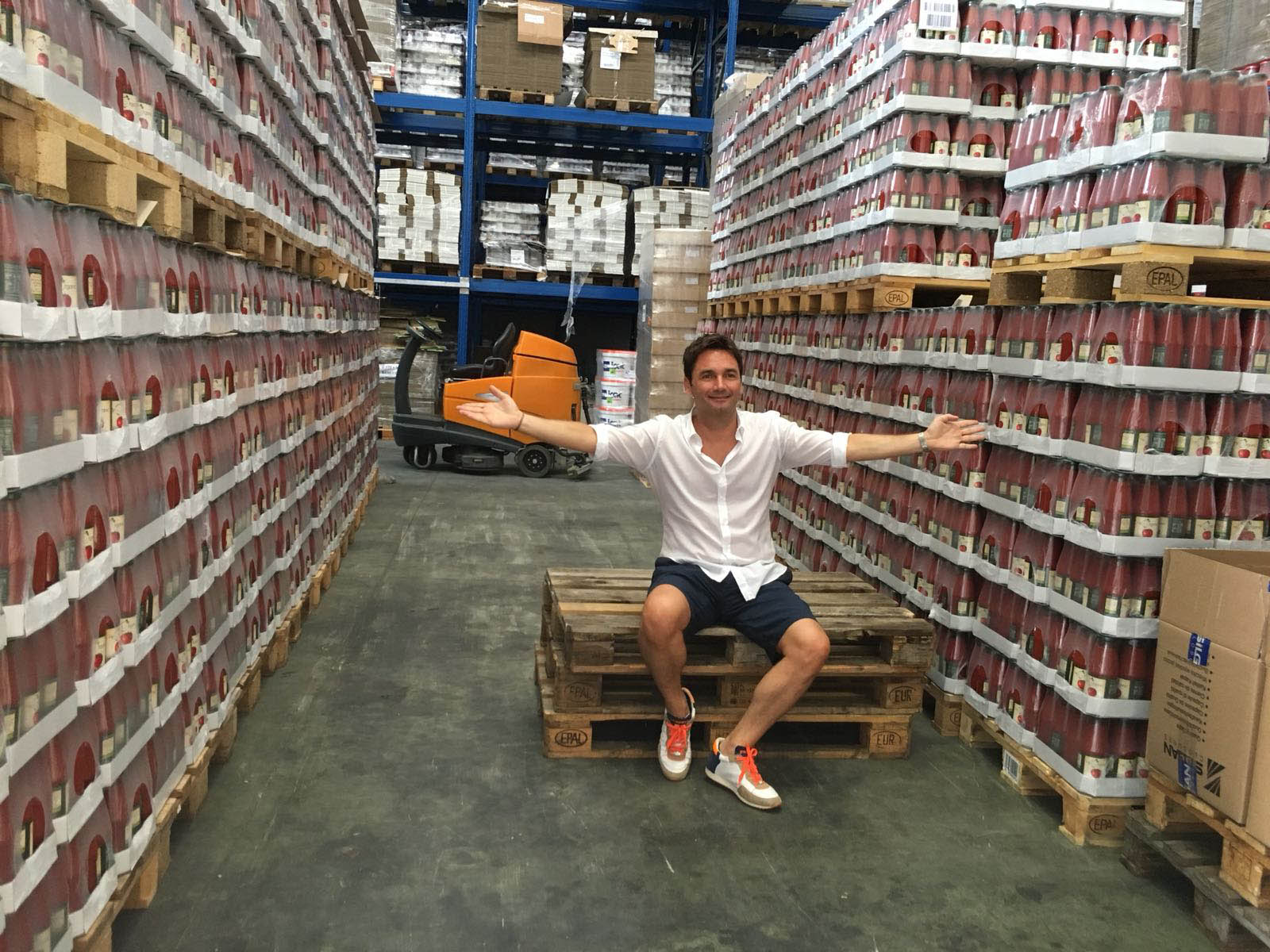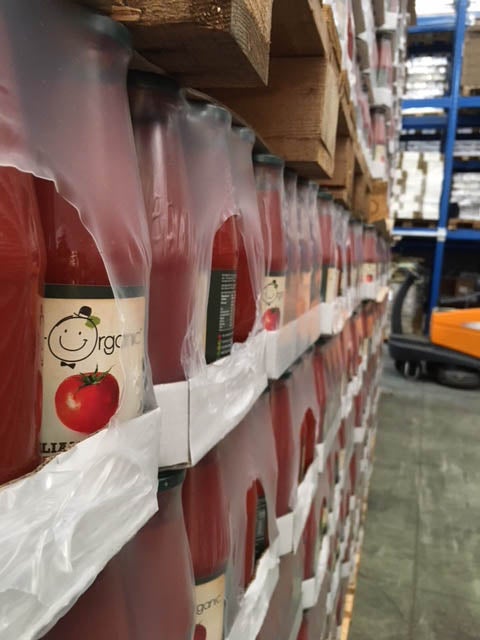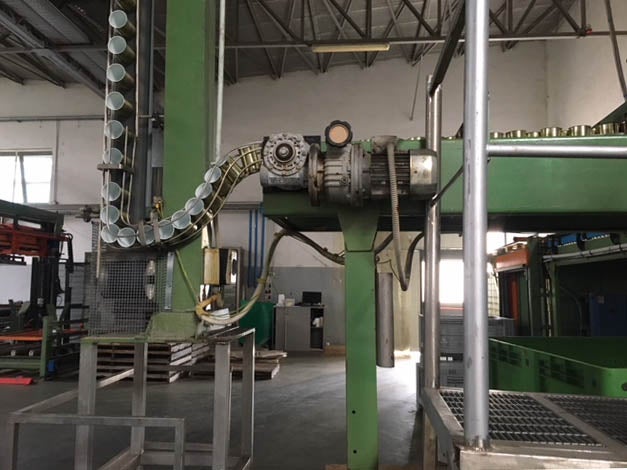Meet the man making tomatoes sustainable again
Mr Organic forms part of a burgeoning seed-to-shelf market catering for consumers who are becoming increasingly conscious of their food’s footprint. By Jessica Brown

Your support helps us to tell the story
From reproductive rights to climate change to Big Tech, The Independent is on the ground when the story is developing. Whether it's investigating the financials of Elon Musk's pro-Trump PAC or producing our latest documentary, 'The A Word', which shines a light on the American women fighting for reproductive rights, we know how important it is to parse out the facts from the messaging.
At such a critical moment in US history, we need reporters on the ground. Your donation allows us to keep sending journalists to speak to both sides of the story.
The Independent is trusted by Americans across the entire political spectrum. And unlike many other quality news outlets, we choose not to lock Americans out of our reporting and analysis with paywalls. We believe quality journalism should be available to everyone, paid for by those who can afford it.
Your support makes all the difference.In August, not everything in and around Rome is as it may seem to the untrained eye. Locals take holiday from work to escape to the beach, leaving behind few but the tourists and tomato farmers, for whom August is the most important month of the year. But holidaymakers and farmers alike had a disappointing August this year, thanks to one unwelcome addition: rain.
Rain is particularly bad news for Valerio Simonetti, founder of Mr Organic, whose livelihood depends on growing organic tomatoes for the brand’s best selling products, and whose workers are prevented from going into the fields to harvest these tomatoes when it rains.
When we speak one Saturday in August, Simonetti tells me his workers haven’t been able to harvest anything since Tuesday that week. But he shrugs and says he can only hope for the best, because Simonetti has worked in agriculture long enough to know that the only way to have an easy life is to accept everything as it is. And it’s been working for him so far.
“The company goes my way whether that works out wrong or right. Hopefully it works out right,” he says.
When he was 14 years old, Simonetti started working in his father’s tomato factory in the coastal city of Latina, just outside Rome. Nine years later, Simonetti took over and the farm started growing exclusively organic tomatoes – which are made into Mr Organic’s hero products, including passata, ketchup and tomato-based pasta sauces.
Now 43, he employs 120 people and produces 12,000 tonnes of tomatoes every year – around 20 trucks a day during harvest which, ideally, lasts just for the month of August. But the rain can push back work by more than a week, inflating costs and delaying important preparation for the rest of the year – because once August is over, the work must continue. In the factory, 200kg of tomatoes are kept in aseptic bags to make ketchup for the rest of the year, and just down the road, the farm gets straight back to work.
“We analyse the seeds to see what worked, then every December we buy new seeds for the new season. In February we send these seeds to the greenhouse as little plants, and when the crop finishes, you have two or three months before it starts again,” Simonetti says.
Mr Organic’s headquarters are in London, where Simonetti lived when he was studying, where the company’s other owners live and where he now visits once a month. But Simonetti is every bit Italian; from his reverence for good, homemade food (he drives to his childhood home to eat lunch with his mother every day), to his penchant for good wine and after-dinner espresso. But his commitment to organic farming, he says, has a touch of German influence.

“We test using microbiological analysis. Even though we own the fields, have our own people and use organic fertiliser, we never trust it 100 per cent, so we check anyway. I’ve learnt this from German people. We never find anything, but we keep doing it.”
Quality checks are made at every point; from the tomatoes in the fields, of which there are five or six varieties, to the finished product.
“Tomatoes are the main ingredient, the one thing to improve is always the tomato. It’s never ending – there’s always the possibility to make sweeter, redder tomatoes,” Simonetti says.
“Mr Organic is very lucky – because it has me. I’ve been in organic for 20 years, I know the risks, I know what to check, how to speak to people.”
But while Simonetti has full confidence in his company – and himself – he’s less optimistic about the industry in which he operates. When I asked him about his hopes for the near future, he replies:
“Let me tell you my hope, and my worries.”
Mr Organic is currently stocked in shops including Planet Organic, Holland and Barrett and Waitrose. Simonetti’s dilemma is whether to stay loyal to independent stores as the company grows, or spread out to more supermarkets.
“If we enter properly into supermarkets, independent retailers might not be too happy. No doubt if our pasta sauce costs £2 in an independent shop, it’s going to cost £1.70 in a supermarket.
“If I look at sales, I’d have to pick supermarkets, because this is where everyone buys from,” he says. “But independent retailers have been bringing food to our tables so far and we don’t want to turn our backs on them.”
Simonetti is confident that more customers would pay a higher price if they knew the truth: that many organic products come from companies that don’t know their product’s journey from seed to shelf.
“There are so many lies around products, but our story is very simple because it’s the truth,” he says. “Brands need something behind them, they can’t just buy and sell without knowing where their products come from.
“Other farms grow organic and non-organic, so the risk of contamination is higher. And the ethos just isn’t there, they’re not really organic believers. But they have much better prices than us.

“It’s important that consumers know that they’re buying organic products from a company that doesn’t just do organic on the side.”
Simonetti sees the company’s seed-to-shelf transparency as going hand in hand with being completely organic – a label that can only be used if at least 95 per cent of a product’s ingredients are organic, from a farm that avoids the use of chemical fertilisers, pesticides, growth regulators and livestock feed additives.
But, as is par for the course as a small business, he resents bigger companies claiming to have the same values. For Simonetti, organic is a way of living. And this way of living includes doing yoga in the office every week.
“I call it a change of consciousness,” he says, sitting at his desk overlooking the factory floor, smoking and pointing proudly at his yoga mat.
However, the Soil Association explains that while some farms do have both organic and non-organic produce, there are strict standards, including that the grower can’t grow the same variety organically as non-organically, so the risk of contamination is avoided. Nevertheless, it states, tension has long been mounting between big food companies doing the bare minimum to meet requirements, and those with higher standards.
For Simonetti, these higher standards include coming up with thousands of new recipe ideas, but only launching around 10 of them each year.
“I guarantee no one else in the organic industry does this. Some competitors come out with 50 new products a year, and I know, because I used to be their supplier, that some of them don’t give a sh*t about quality.”
Despite the higher costs of operating ethically and organically – and the risk that these higher costs aren’t translated to consumers – Mr Organic forms part of a burgeoning seed-to-shelf market catering for consumers who are becoming increasingly conscious of their food’s footprint.
According to the 2017 Organic Market Report, supermarket sales of organic foods are up 6 per cent and have enjoyed six years of consecutive growth, and in the UK alone, seed-to-shelf brands are thriving – and they also have the advantage of having a story to tell.
In the UK alone there is Big Bear Cider Mill, which comes from traditional cider apples grown in pesticide-free orchards created from regenerated gravel pits, and the British Quinoa Company, which has toiled to work out how to grow quinoa in the British climate and now sells to leading supermarkets – to name a few.
Despite the challenges facing Mr Organic – natural and otherwise – Simonetti is confident both retailers and consumers will continue to surrender to the charm and quality of Mr Organic, and increasingly look to buy into the stories behind brands. However things work out for Mr Organic, Simonetti will have forged his own way there.
Join our commenting forum
Join thought-provoking conversations, follow other Independent readers and see their replies
Comments